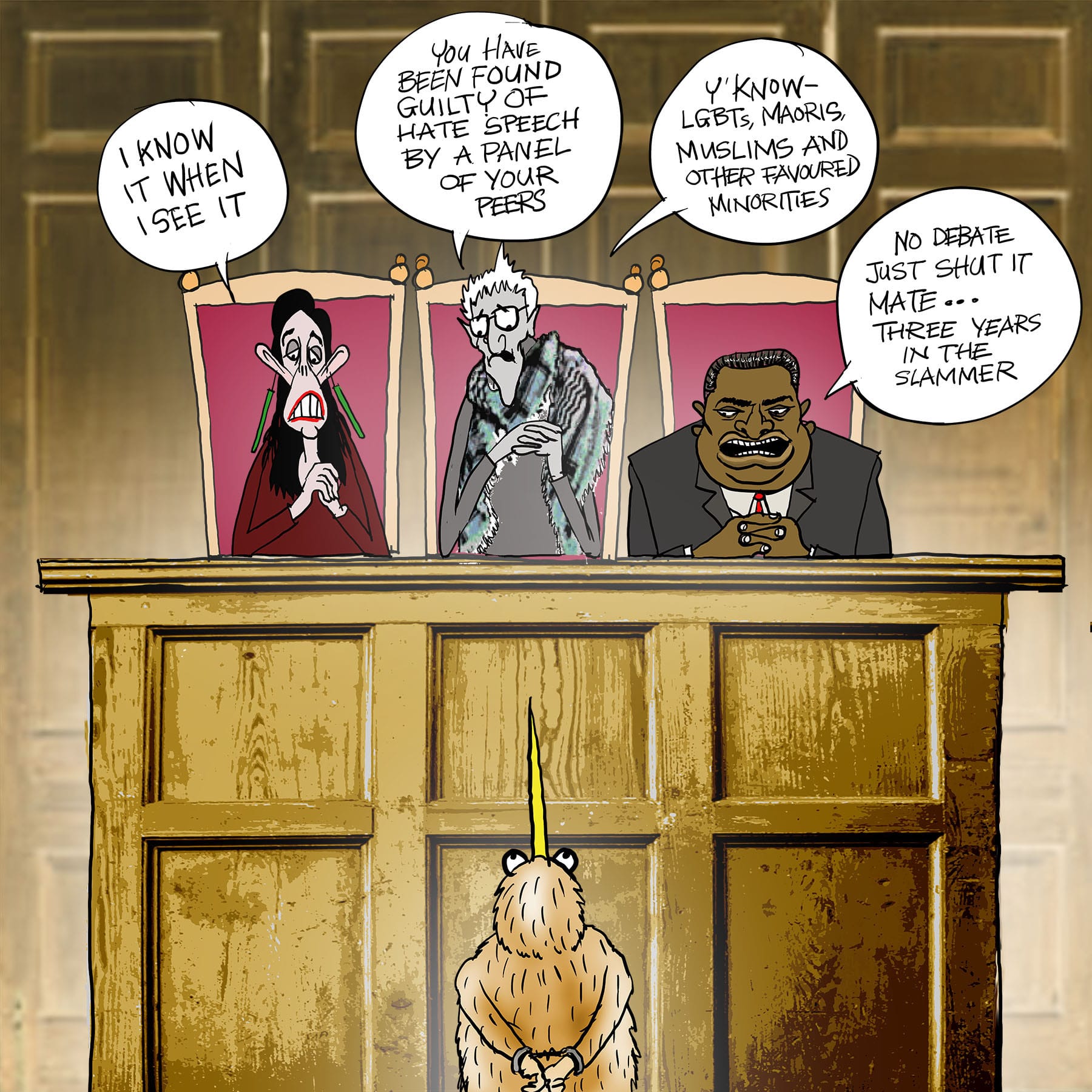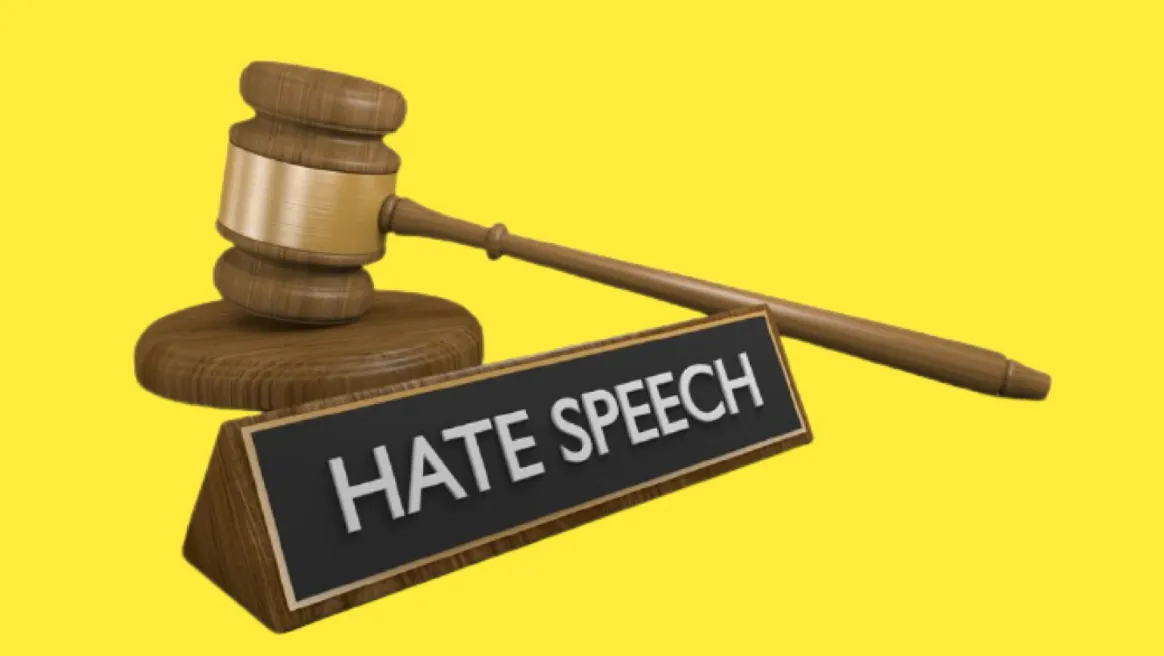Table of Contents
Bryce Edwards
democracyproject.nz
The Government has delayed the introduction of its fraught hate speech law reforms, and there’s strong speculation they’ll remain on ice until after the next election. In fact, they may never see the light of day again.
This is a win for those who have argued that the reforms are likely to be counterproductive, impinging on human rights, including political freedoms and speech. Although the Government’s motivation might have been good in wanting to clamp down on what people can legally say, in practice, the reforms were badly thought through and would have a chilling impact on political debate.

Famously both the Minister of Justice Kris Faafoi and Prime Minister Jacinda Ardern were unable to adequately defend or explain their new rules last year, which gave weight to the argument that they were dangerous and knee-jerk.
Opponents of the Government were easily able to paint a picture of the reforms as epitomising a “woke and authoritarian” impulse by Labour. This created an electoral risk for Ardern’s administration.

The fact that the voices of dissent crossed the political spectrum from left to right, meant Labour had real pause for thought about persisting with the reforms. Although there was very strong enthusiasm for action on hate speech within some sections of the Labour Party, it threatened to bog the Government down in a big culture war over the regulation of speech.
With last week’s 1News opinion poll giving Labour a wakeup call, there is now a clear impetus for Labour to re-evaluate the parts of their reform programme that might be unnecessary and unpopular. Clampdowns on speech and politics were the first to go.
Faafoi announced on Newshub’s The Nation on Saturday that the reforms would be delayed. He sensibly explained:
“I think, as you would have seen from the public reaction to that, I think it showed us that much more care needed to be taken to make sure that, you know, I think, the intent is genuine to make sure that those laws land in the right place” and “I want to make sure we get that right”.
The mature stance from Faafoi continued this week, when he further explained the need to taihoa: “when you’re dealing with complex issues, delicate issues, and sensitive issues like this, you should take the appropriate amount of time to do that”. He added: “When you get that amount of feedback, and that kind of response, I think it’s inherent on us to make sure that we move through and with caution.”
In contrast, Race Relations Commissioner Meng Foon is very unhappy with this decision, and he has accused the Government of “dragging its heels” on the reforms, saying this would allow hate to fester.
Foon complains that the Government is being too sensitive to political criticism, arguing Labour has delayed the reforms simply because it has been “politically too hard to deal with”. He argues it’s simply not good enough:
“Yes, it is political to implement and make laws, but that is the job of the Government – to make difficult decisions.”
His office has always been one of the strongest campaigners for the change. Foon says to ignore the criticism and begin the process of implementing the original proposals. He has said:
“Whether they like it or not, they got their feedback, and now it’s time to get on with it and get it on to the debating chamber, or select committee, and go through the process and adopt it, and make it law.”
Does Foon believe that more consultation with the community is necessary, or that the unintended consequences could be ironed out with further consideration? It seems not. He says:
“We have had meetings galore; my suggestion is less meeting and more getting on with making Aotearoa a safer place.”
However, the Race Relations Commissioner has also shown he has a very poor grasp of the reforms. He denies that the reforms would impact on people’s rights, and he erroneously says: “It’s not about that. It’s about inciting violence from the speech that people make. That is the threshold”. He has elaborated that, “The bill is to stop incitement of violence and it is to stop another mosque attack like they’ve had”.
In fact, incitement to violence is already illegal, and these proposals are about a very different issue: incitement to hate.
This concept has proved very nebulous to define. It caught out Faafoi and Ardern, who couldn’t explain what it meant last year, nor who would be prosecuted by the new law. The infamous example that Faafoi admitted was possible, was it could lead to prosecution of millennials hating boomers for the housing crisis.
It was concerning that a Justice Minister and Prime Minister had such poor understanding of their own legal reforms last year. And it’s worrying that the Race Relations Commission has such little understanding or concern for human rights.
The political parties have used other issues to justify the reforms. For example, this week in Parliament, Green MP Golriz Ghahraman argued on the anniversary of the March 15 Christchurch terrorist atrocity that it was the direct result of the lack of regulation of political speech in New Zealand. She also raised the recent protests outside Parliament as illustrating the need for a clampdown.
For Labour, a big justification for progressing hate speech law reforms has been the stated need to create and maintain “social cohesion”, which is a very worthy goal. However, it has become increasingly clear that the hate speech proposals themselves were a kneejerk reaction that would actually worsen social relations.
Although law reforms might seem like an easy fix for a government wanting runs on the board for progressive transformation of society, there is no getting around the fact that social cohesion arises more from the economic and material position of the citizenry. When public policy leads to inequality, poverty, homelessness, educational and health inadequacy, this drives the conditions for social division and conflict. It’s these areas Labour needs to urgently turn to.









